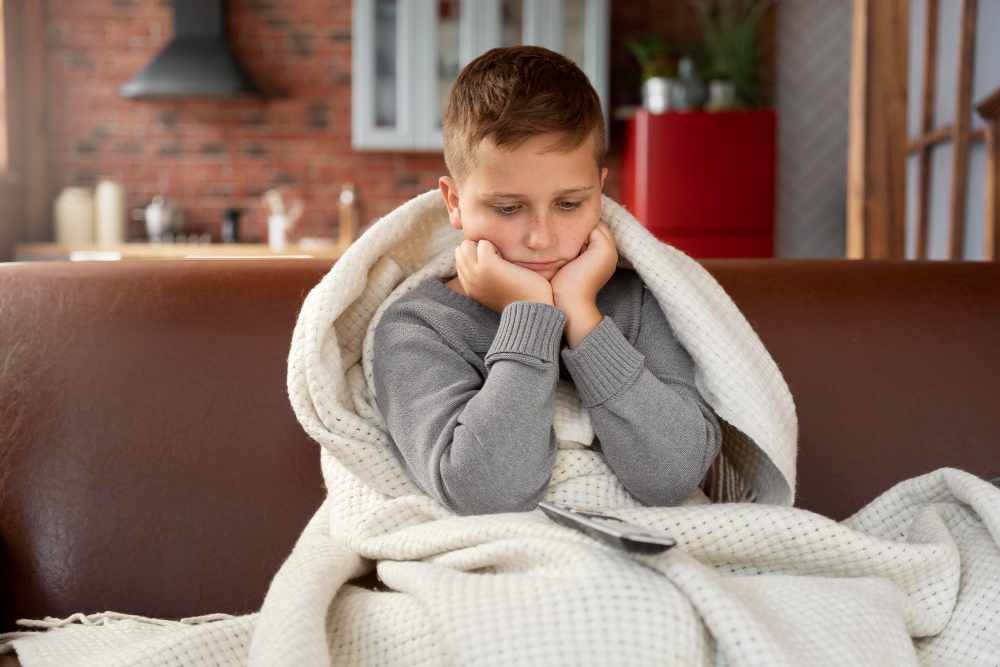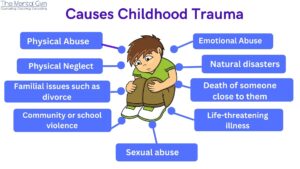Healing Childhood Trauma
By Bill Benson · Dec 2, 2022

Many people face unfortunate, scarring events in their childhood. Most often, the consequences of these can lead to prolonged childhood trauma, which people are left to deal with during their adulthood. If left unaddressed, childhood trauma can have long-term ill effects on the quality of someone’s life.
What is Childhood Trauma?
Childhood trauma can be explained as an emotionally painful or distressing event resulting in physical, mental, and emotional consequences. The traumatic experience can range from losing a parent suddenly to physical abuse or a natural disaster. It can even be something as seemingly innocuous as overhearing a conversation with triggering content.
Learning to understand and cope with difficulties, trauma, and tragedies is a natural part of growing up. But in more serious cases, a lack of exposure to proper mental healthcare can result in childhood trauma in adults.
Effects of Childhood Trauma on the Psyche
Childhood trauma can affect neurological development, hormonal regulation, and cognitive and emotional competencies. It also increases impulsive and risky behaviour, such as substance abuse. This claim is substantiated by a 2021 study by Auckland Univerisity on the themes of child abuse and neglect.
What can Cause Childhood Trauma?
- Neglect
- Familial issues such as divorce
- Death of someone close to them
- Psychological, physical, emotional, and sexual abuse
- Natural disasters
- Substance abuse
- Community or school violence
- Life-threatening illness

Trauma Signs in Children
In preschool and elementary age, childhood trauma symptoms include separation anxiety, difficulty sleeping, frequent nightmares, feelings of anxiety, crying for no reason, decreased appetite, moodiness, and increased aggression.
In teens, the signs of childhood trauma are irritability, academic problems, sudden withdrawal from social activities, self-blame, difficulty concentrating, feelings of depression, and increased behaviors like sexual activity and alcohol and substance abuse.
What Happens if Trauma Remains Unresolved?
Effects of childhood trauma and early childhood trauma are distorted self-perception, feelings of shame and guilt, chronic physical pain, and anxiety.
Repressed childhood trauma can also cause depression, panic attacks, fatigue, impulsiveness, insomnia, self-harm, eating disorders, and suicidal ideation. Childhood trauma in adults also increases the risk of mental health disorders. Depressive, anxiety, obsessive-compulsive bipolar, and substance use are some disorders caused by childhood trauma.
Adults with childhood trauma are more common than you imagine. ‘Childhood trauma therapist near me’ is among the more common internet searches. In 2020, the World Health Organization estimated that globally, around 1 billion children aged between 2–17 years have experienced physical, sexual, or emotional violence or neglect.
Therapy for childhood trauma is needed to prevent problems in adulthood.
Effect of Childhood Trauma on Health
There are several childhood trauma signs in adults. Toxic stressors in childhood can take a lifelong toll and can manifest in adulthood. So, when adults show signs of trauma, it can be a result of the trauma they experienced in childhood.
Studies have found that the chances of getting a heart disease increased in adults who had experienced abuse, witnessed interpersonal violence, or lived in a household where there was substance abuse. The odds of asthma and diabetes also rose for adults who experienced childhood trauma, such as mental illness, substance abuse, and divorce.
The study found that those who experienced even one type of childhood trauma, such as a family member in jail, were associated with an increased risk of poor mental health. Since types of childhood trauma often involve a trusted loved one, a caregiver, or even a family member, in adulthood, this can lead to trust issues and deeply rooted feelings of insecurity.
Here are some of the signs of childhood trauma that adults might exhibit:
- Adults who experience childhood trauma are more prone to depression, mood disorders, and suicidal thoughts.
- They are also likely to engage in substance abuse.
- Adults affected by childhood trauma may exhibit unexplained and irrational anger or irritability.
- Adults with childhood trauma could find maintaining old or establishing new, healthy relationships challenging.
How to Heal Childhood Trauma
Several forms of therapy can help heal childhood trauma, some of which are:
- Cognitive processing therapy (CPT): CPT aims to help a person change how they think about the event(s) that led to the trauma, thereby relieving the adverse effects.
- Prolonged exposure therapy (PE): This involves confronting the source of fear to reduce anxiety and support healing from childhood trauma.
- Cognitive behavioural therapy (CBT): Therapists use CBT to help people identify and correct unhealthy behaviour patterns and develop new ways to cope in case of mental illness caused by childhood trauma.
Hypnotherapy: This is a popular alternative childhood trauma therapy for adults, especially those who have struggled with other therapy types. Here, the therapist works to help reduce the emotion attached to the event by working with the subconscious mind.
While there are several coping mechanisms to deal with childhood trauma, the key is to try different methods and find one that works for you. Since healing is a long process, the sooner you identify the method that suits you best, the better.
Summing up
Recovering from childhood trauma is a long and gradual process. Along the healing journey, chances are that you will experience helplessness and isolation. However, the first step in healing from childhood trauma is to acknowledge the trauma. Do not try to push your feelings under the carpet or minimize them. Acknowledge your emotions, and you are ready for the next step to reclaiming control – seeking support.
